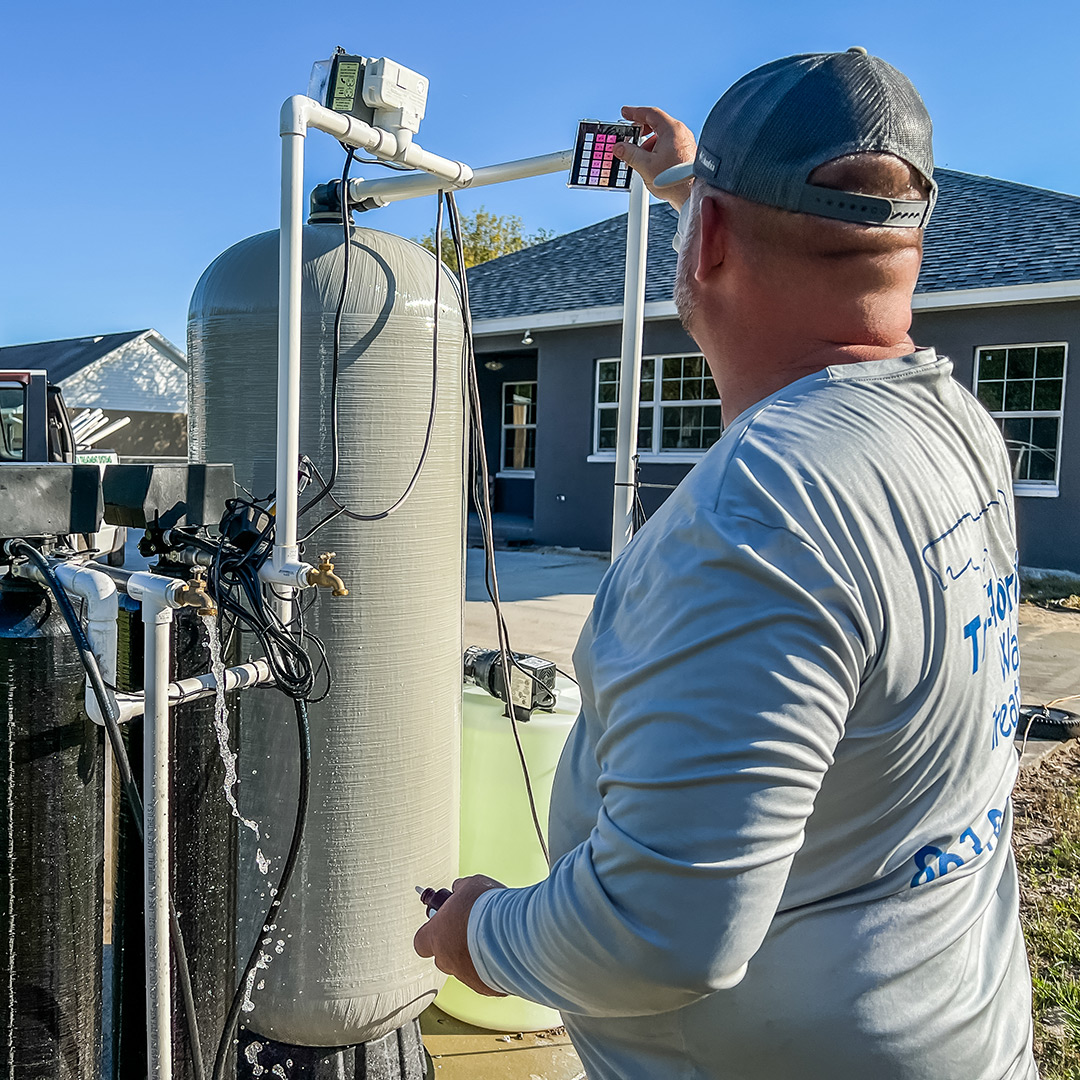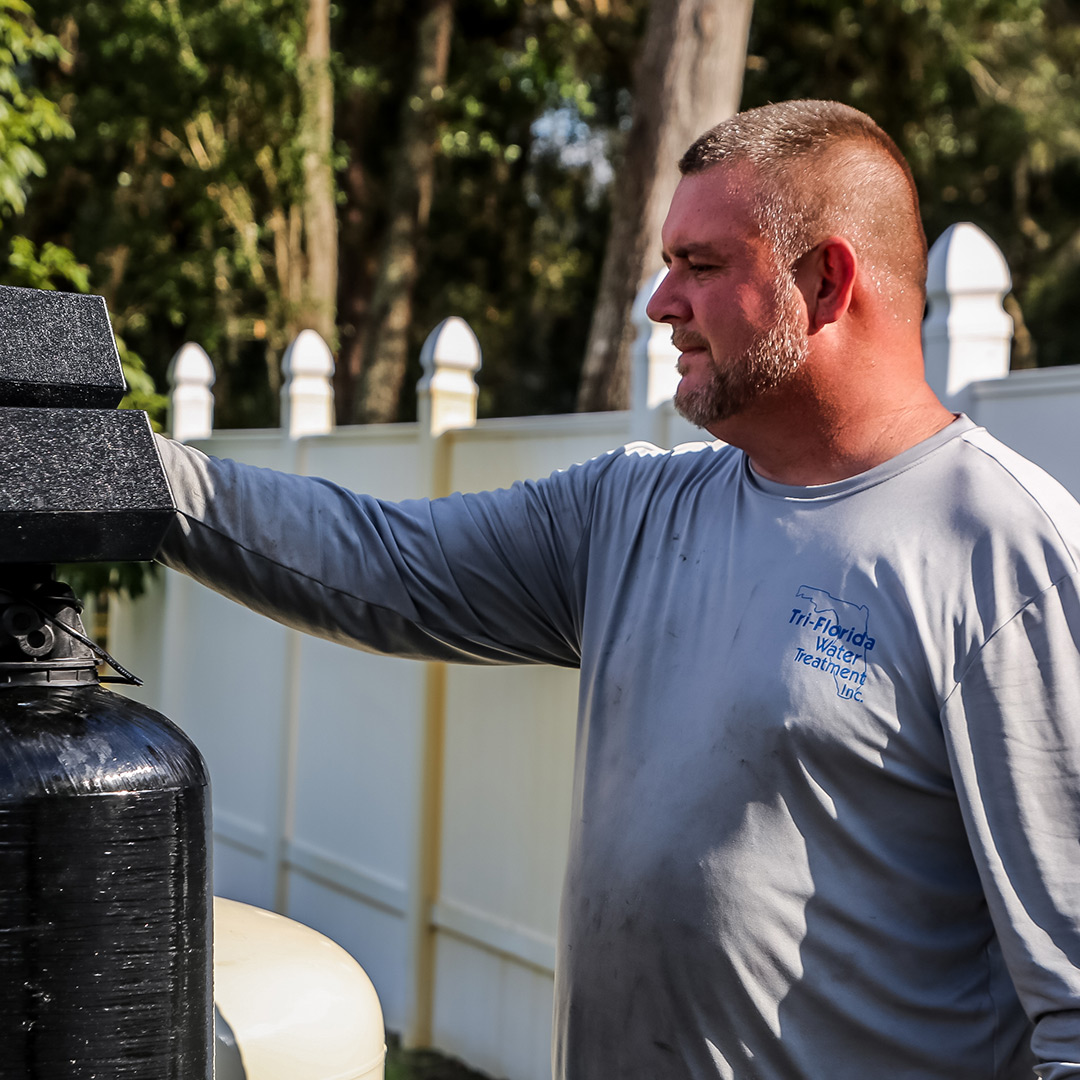Protect Your Water from Waterborne Microbes & Hazards
Well water can become contaminated by various harmful microbes, including bacteria like E. coli, viruses like norovirus, and parasites like Giardia. Here’s how to safeguard your well water to protect you and your family.
 Regular Testing
Regular Testing
The first step to protecting your well water is regular testing. Experts recommend annual testing for bacteria, nitrates, and other contaminants. However, you should test the water more frequently in areas with known water issues. You can get testing kits from your local health department or hire a professional testing service.
Well Construction and Maintenance
How you construct the well plays a crucial role in its safety. According to the EPA, groundwater contamination is nearly always the result of human activity. Whether accidental or intentional, chemicals and waste can get into the groundwater. For example, if you build your well too close to a septic tank, livestock, or chemical storage area, there’s a risk of contamination.
Moreover, the well should have a tight-fitting, sanitary well cap or seal at least 1 foot above the ground to prevent surface water from seeping in.
Regular maintenance is essential to ensure safe drinking water—inspect the well’s casing, cap, and surrounding area annually for cracks or signs of damage. Keep the area around the well clean and free from debris that could contaminate the water.
Control Runoff
Surface runoff can carry harmful bacteria and chemicals into the well. To mitigate this, maintain a gentle slope away from the well to divert water. Plant grass or other vegetation around the well can help reduce erosion and runoff.
Invest in a Water Treatment System
If your well water has tested previously for contamination or you’re aware of contaminated groundwater in the area, consider installing a water treatment system. Options include reverse osmosis, UV light treatment, and chlorination. Each method has advantages and is effective against different contaminants, so it’s best to consult a water treatment specialist to determine which is right for you.
Seal Abandoned Wells
Abandoned wells can directly channel contaminants into the groundwater. A report published by the EPA says,
These [abandoned] wells can act as a conduit through which contaminants can reach an aquifer if the well casing has been removed, as is often done, or if the casing is corroded. In addition, some people use abandoned wells to dispose of wastes such as used motor oil.
If you have an old, unused well on your property, have it properly sealed by a licensed professional to protect your active well and the local groundwater.
Be Prepared
If you rely on a well, you should have an emergency plan for safe drinking water should something go wrong. This includes storing bottled water or knowing how to boil and disinfect water for emergencies. Additionally, stay up-to-date about local water advisories and issues, like chemical spills or construction, that could impact your well water’s safety.
 Dangers of Well Water Contamination
Dangers of Well Water Contamination
As mentioned, well water can become contaminated by harmful microbes like E. Coli, norovirus, and parasites like Giardia. Consuming contaminated water can lead to health issues like gastrointestinal illness, dehydration, and, in cases of long-term contamination, lead to chronic diseases like anemia, high blood pressure, and, in rare cases, cancer.
Call Tri-Florida Water Treatment Inc.
If you’re concerned about the safety of your well water, call Tri-Florida Water Treatment Inc. and ask about our water testing and treatment services. We’re water plant operators certified by the Department of Environmental Protection and have over 30 years of experience.
If your water is hard, tastes or smells bad, or you believe it is unhealthy, we have the solution.
Contact us today at 863-965-1439.
